Best Fertilizer Granulator
Fertilizer granulator is a kind of equipment to process powder or granular fertilizer into granular fertilizer with uniform size and regular shape. Through granulation, the fertilizer can improve liquidity, reduce dust, facilitate transportation and application, and also improve the physical properties of the fertilizer and increase the utilization rate of the fertilizer.
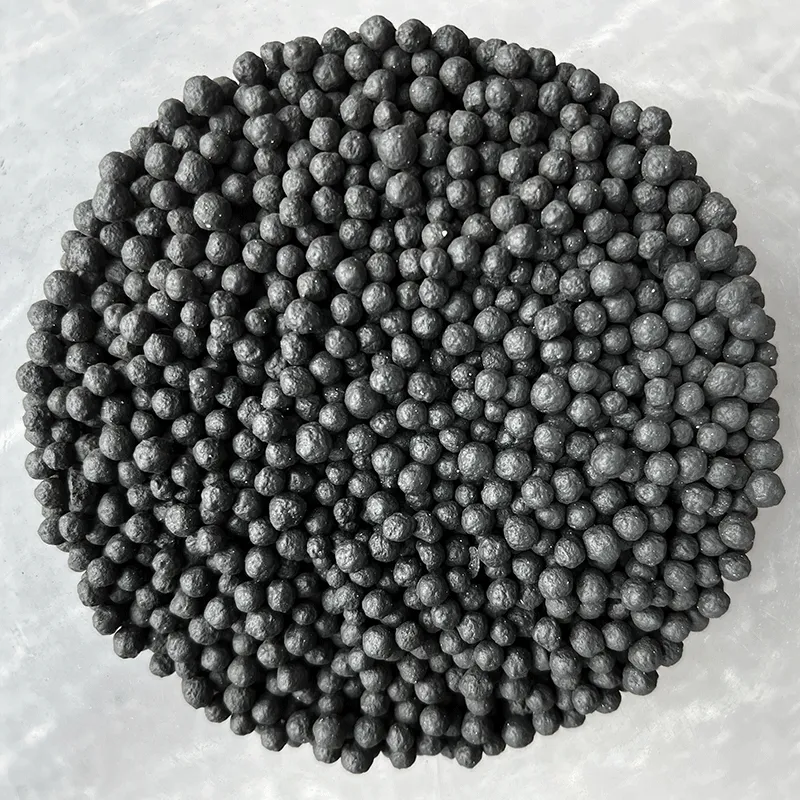
Why do we need granulation?
- Improve fluidity: Granular fertilizers have better fluidity than powdered fertilizers and are less likely to clump, making them easier to transport and apply.
- Reduce dust: Granulation reduces dust, improves the working environment and protects the health of the operators.
- Improved physical properties: Granular fertilizers have better physical properties, such as porosity, surface area, etc., which are conducive to the release and absorption of nutrients.
- Improve the utilization rate: Granular fertilizer can reduce the loss of fertilizer, improve the utilization rate of fertilizer.
Common process of fertilizer granulation
The common processes of fertilizer granulation mainly include the following methods:
1. dry granulation and wet granulation
Dry granulation
Dry granulation does not use liquid solutions and usually employs extrusion granulation technology. In this process, the raw materials are polymerized into granules under high pressure without drying or cooling, which is suitable for small and medium-sized fertilizer plants with low investment. Pellets from dry pelletizing are usually flat, with high curability, but with coarse particles.
Wet granulation
Wet granulation requires the addition of water or binder, and commonly used equipment includes rotary drum granulators and sprayers. This method produces granules with high moisture content and therefore requires a subsequent drying and cooling process. Wet granulation is characterized by uniform particles and is suitable for the production of a wide range of compound fertilizers, such as DAP (Diammonium Phosphate) and urea.
| Characteristics | Dry Granulation | Wet Granulation |
|---|---|---|
| Principle of Process | No liquid is added, relying on compression molding | Water or binder is added to form granules |
| Advantages | No need for drying, saving time and cost Suitable for heat-sensitive and easily decomposable materials High production efficiency, low energy consumption Good granule flowability, convenient for subsequent processing | Uniform granules with good appearance Uniform nutrient release, better fertilizer effect Wide application range, can handle various raw materials Suitable for large-scale production |
| Disadvantages | High requirements for materials, need fineness Relatively low granule strength Not suitable for some sticky materials | Requires subsequent drying, increasing production costs May cause material adhesion, affecting flowability Complex production process, high equipment requirements |
2. Specific granulation processes
Spray slurry granulation
Spray slurry granulation is the nitrogen and phosphorus slurry mixed with other raw materials, through the spray method of granulation, nutrient uniformity, suitable for the production of high-efficiency compound fertilizer. The advantage of this process is that the nutrients are released evenly, and the fertilizer effect is better.
Tower granulation
Tower granulation process is to melt urea and other raw materials mixed reaction, the production of compound fertilizer nutrient distribution is uniform, suitable for rapid dissolution, commonly used in fertilizer. The disadvantage of this process is that the nitrogen content is high, the phosphorus content is limited, and may lead to the content of diurea exceeds the standard.
Granulation drum
Granulation drum is a mixture of nitrogen fertilizer, phosphate fertilizer and potash fertilizer to form particles in the drum. This method is simple, but the nutrient mixture is not uniform enough, the water solubility rate and utilization rate is low, and it is easy to be lost.
Dry powder physical granulation method
This method is through the selection of dry powder fertilizer raw materials and binder, in the granulator heating and water to form particles, suitable for deep processing BB fertilizer production, granulation conditions need to be controlled in a specific range of temperature and water content.
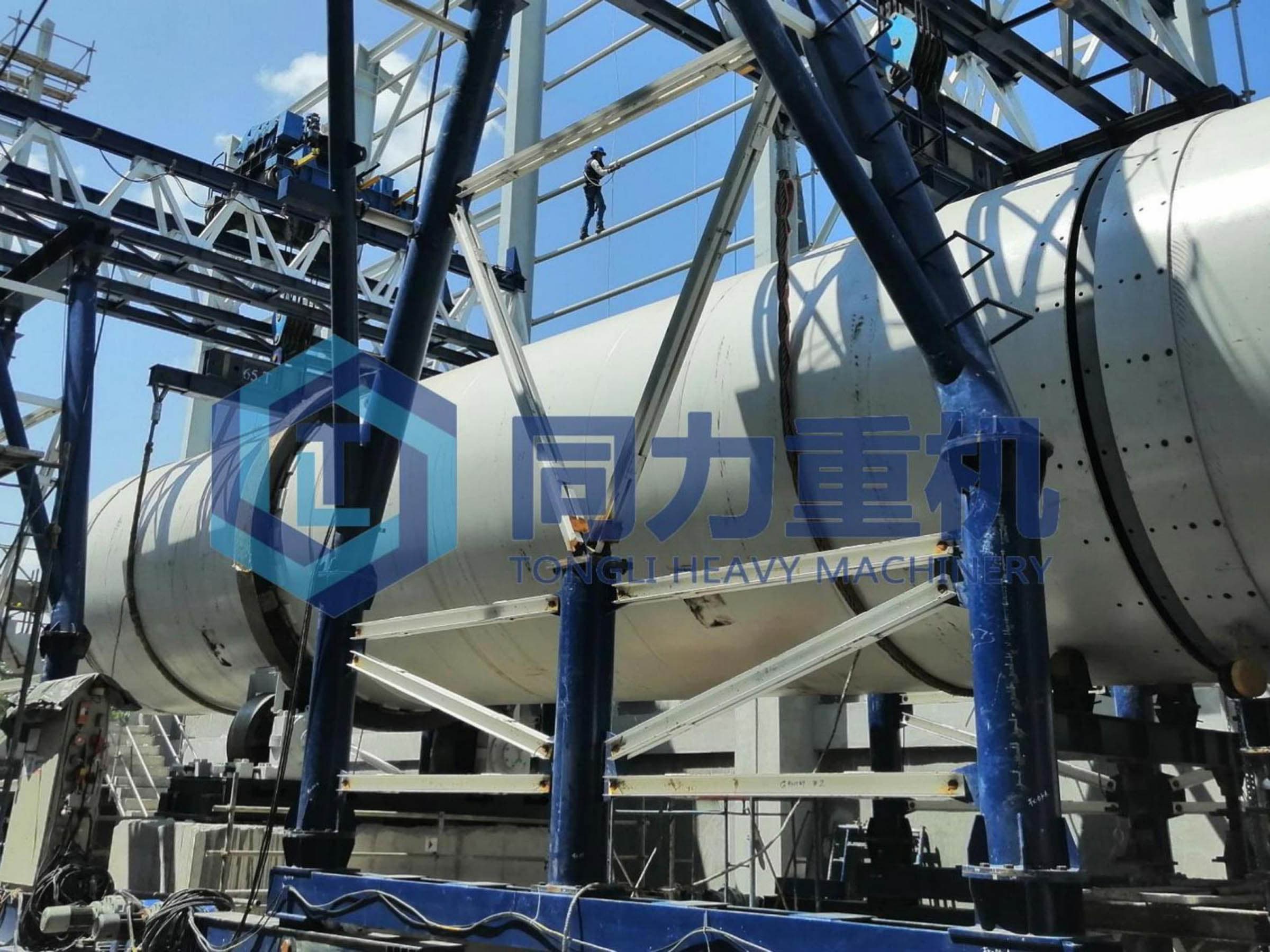
Types of Fertilizer Granulator
Fertilizer granulator is one of the key equipments in fertilizer production process. It can make powdery or granular raw materials into spherical or columnar particles. Several common types of fertilizer granulators include.
1. disk type granulator
Disc granulator is one of the most important granulation equipment in the fertilizer production line. It has the following advantages.
- The pan adopts circular arc structure, and the output of compound fertilizer reaches 93%.
- The pan surface is made of strong iron material, simple structure, high yield of fertilizer granule and convenient maintenance.
- Stable and reliable operation, low noise
- Suitable for organic fertilizer and compound fertilizer production line
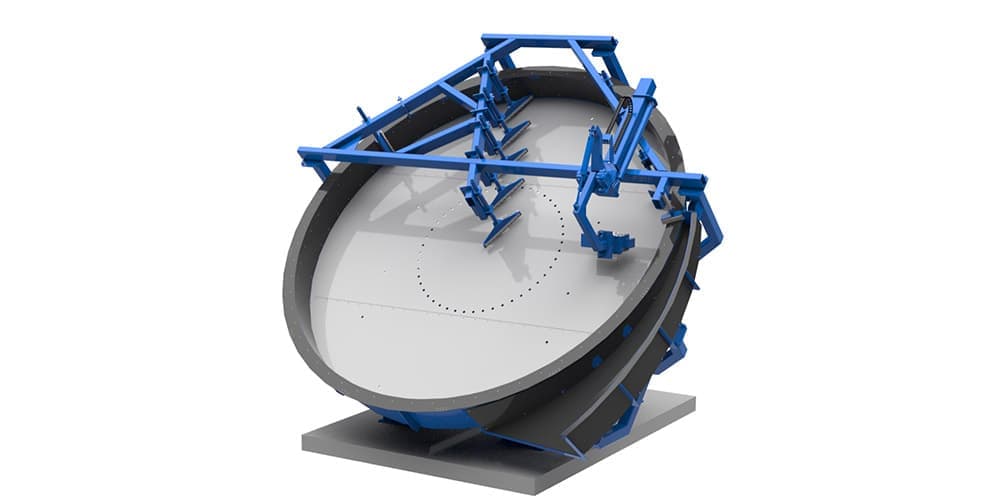
2. Double-die extruder granulator
Double-die extruding granulator combines many advanced extrusion technologies together and is one of the most commonly used equipment in organic fertilizer production. It can produce high quality fertilizer granules.
3. Rotary drum granulator
Rotary drum granulator is mainly used in compound fertilizer production line, with high output of fertilizer granules, suitable for large-scale fertilizer production requirements.
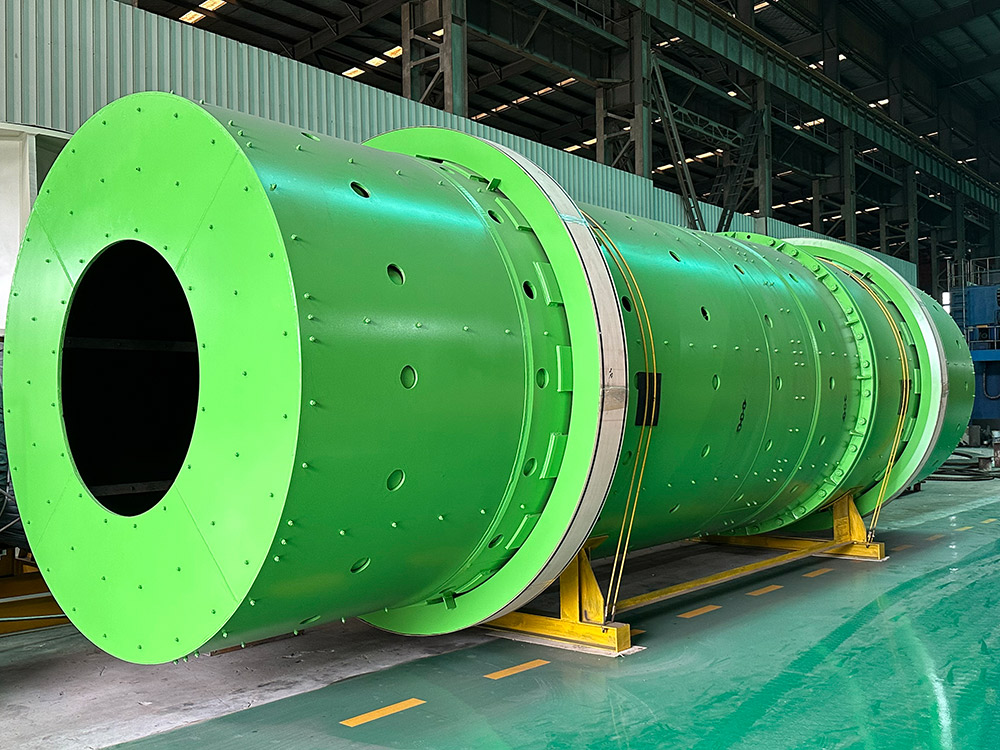
4. Flat Die Extruding Pelletizer
Flat film pelletizer can produce granular feed, organic fertilizers, can produce cylindrical pellets, can also be connected to a variety of molds to adapt to the pelletizing needs of different materials.
5. Roller extrusion granulator
Roller extrusion granulator is suitable for dry materials with moisture content less than 8%, which is used in compound fertilizer production line to produce nitrogen, phosphorus and potassium compound fertilizer and urea.
6. New organic fertilizer special granulator
New organic fertilizer special granulator is specially designed for organic fertilizer material characteristics and a kind of granulation equipment. It overcomes the traditional granulator in the treatment of organic materials, there are many problems, such as serious bonding, easy to clog.
In summary, different types of granulators have their own characteristics, suitable for different fertilizer production needs. Selection should be combined with the actual situation for selection.
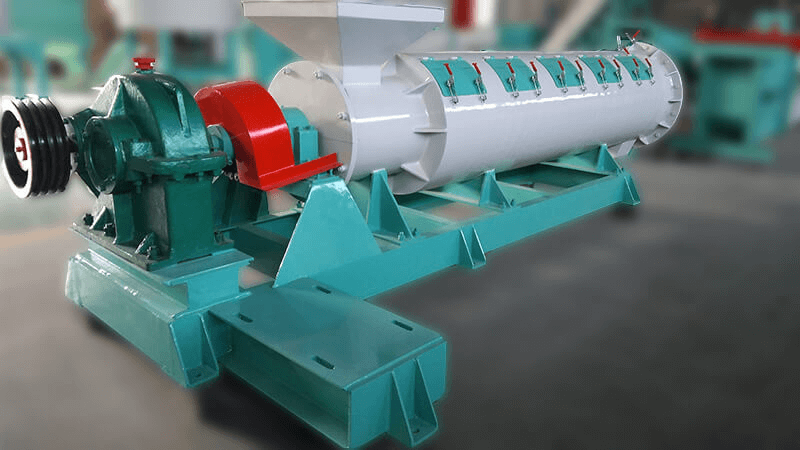
How to choose the right fertilizer granulator for your needs?
Choosing the right fertilizer granulator is a very critical step in the fertilizer production process, which directly affects the quality of the product and production efficiency. The following will be detailed from several aspects of how to choose:
1. Clear production requirements
Material characteristics: the type of raw materials, particle size, moisture content, viscosity and other direct impact on the granulation process.
- Production requirements: according to the production scale to determine the required equipment capacity.
- Product quality requirements: particle size, strength, uniformity and so on.
- Energy consumption: Consider the energy cost and environmental protection requirements.
- Site constraints: the area of the production plant, height, etc..
2. Understanding the type of granulator
- Disc granulator: suitable for sticky materials, such as compound fertilizer, organic fertilizer.
- Rotary drum granulator: suitable for materials with large granularity, such as phosphate fertilizer, potash.
- Extruder: for materials with high water content, such as organic fertilizer, bio-fertilizer.
- Spray granulator: suitable for the production of uniform fine particles, such as compound fertilizer, micronutrient fertilizer.
3. Comparison of different models
Technical Parameters: Compare the capacity, energy consumption, floor space and other technical parameters of different models of granulators.
Quality Assurance: Find out about the manufacturer’s qualifications, after-sales service, etc.
Price: Choose the most cost-effective equipment according to your budget.
4. Consult the professionals
Equipment suppliers: consult professional equipment suppliers, they will recommend the right equipment for you according to your specific needs.
Industry experts: consult the experts in the industry, to understand the latest technology and market trends.
5. On-site inspection
Visit the production line: If conditions allow, you can go to the production site visit, to understand the actual operation of the equipment.
Trial production: Before purchasing the equipment, you can carry out small-scale trial production to verify the performance of the equipment.
Selection considerations
- Consider the future development: In addition to meet the current production needs, but also consider the future expansion needs.
- Focus on the degree of automation: a high degree of automation of the equipment can improve production efficiency and reduce labor intensity.
- Focus on environmental performance: choose environmentally friendly equipment to reduce pollution of the environment.
Choosing the right fertilizer granulator requires comprehensive consideration of a variety of factors, is a systematic project. It is recommended that you understand your production needs in detail before choosing, and consult many opinions in order to make the right decision.
The following questions can help you think more deeply:
- What are the types and characteristics of the fertilizers you want to produce?
- What are your product quality requirements?
- What is your current production scale?
- What level of automation do you require?
- What is your budget?
If you can provide more detailed information, I can provide you with more targeted advice.
Application and characteristics of fertilizer granulator
Fertilizer granulator plays an important role in the production of chemical fertilizer, compound fertilizer, organic fertilizer and bio-fertilizer. Its main advantages include high productivity, stable product quality, high degree of automation and strong adaptability.
Application Areas
Fertilizer granulator is widely used in the following fields:
- Fertilizer production: for the production of various chemical fertilizers.
- Compound Fertilizer Production: Especially suitable for the manufacture of compound fertilizers, capable of achieving up to 93% output.
- Organic fertilizer production: able to handle a variety of organic materials, such as livestock and poultry manure, sewage sludge, etc., direct granulation, eliminating the need for drying and crushing processes.
- Bio-fertilizer: suitable for the production of bio-organic fertilizer to meet the demand for environmental protection.
Advantage analysis
- High production efficiency: fertilizer granulator can realize continuous production, with large output capacity, suitable for large-scale production needs.
- Stable product quality: the granulator can ensure that the particle size is uniform and the shape is regular, which improves the market competitiveness of fertilizer.
- High degree of automation: the equipment is simple to operate, easy to manage, reduce labor costs and improve production efficiency.
- Strong adaptability: able to handle a variety of materials, suitable for different production needs, especially in the production of organic fertilizers and compound fertilizers with excellent performance.
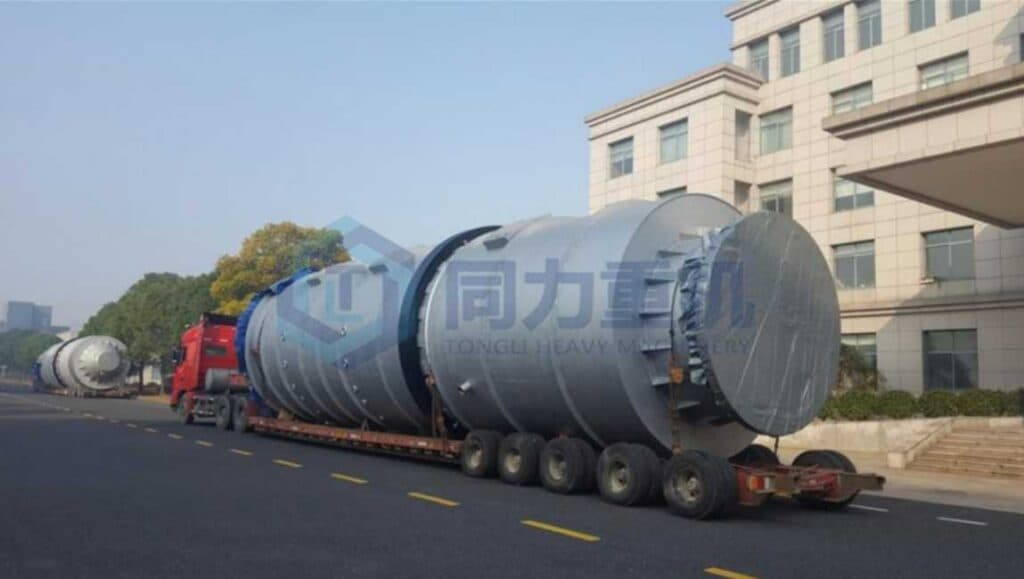
TONGLI: Your Trustworthy Fertilizer Equipment Experts
TONGLI is a leading company focusing on the manufacturing of fertilizer equipment and is committed to providing efficient, reliable and customized fertilizer production solutions to customers worldwide. We have a wealth of experience and advanced technology to meet the needs of different sizes and types of fertilizer production.
Product Range:
- Organic Fertilizer Granulator: Convert organic waste into high quality organic fertilizer, realize resource recycling and help green agriculture development.
- Compound Fertilizer Granulator: accurately proportional to a variety of nutrients, to produce comprehensive nutrients, efficient compound fertilizer, to meet the needs of modern agriculture, high yield and high efficiency.
- Bio-fertilizer granulator: Adopting advanced biotechnology to produce probiotic-rich bio-fertilizer, improve soil microstructure, crop yield and quality.
Complete fertilizer production line solution:
In addition to the core pelletizing equipment, TONGLI also provides the following ancillary equipment to create a complete and efficient fertilizer production line for customers:
- Fertilizer dryer and cooler: Drying and cooling of fertilizer to ensure product quality.
- Coating roller: Add coating film for fertilizer granules to improve flowability, water resistance and other properties.
- NPK compound fertilizer production line, organic-inorganic fertilizer production line, high tower fertilizer pelletizing production line, BB fertilizer blending production line, roll-press round pellet extrusion line, roll-press irregular pellet extrusion line: to meet the needs of different fertilizer varieties.
Advantages of TONGLI:
- Leading technology: Adopting advanced manufacturing process and automatic control system to ensure product quality and production efficiency.
- Customized service: Provide tailor-made solutions according to customers’ specific needs.
- Perfect service: Provide professional pre-sales consulting, installation and commissioning, after-sales service, to ensure that customers worry-free production.
Choose TONGLI, you will get:
- Higher production efficiency: advanced equipment and process, shorten the production cycle, reduce production costs.
- Better product quality: strict quality control system to ensure that the products meet international standards.
- Lower operating costs: energy-saving and environmentally friendly design, reducing energy consumption.
If you need more detailed product information or customized solutions, please feel free to contact us!

